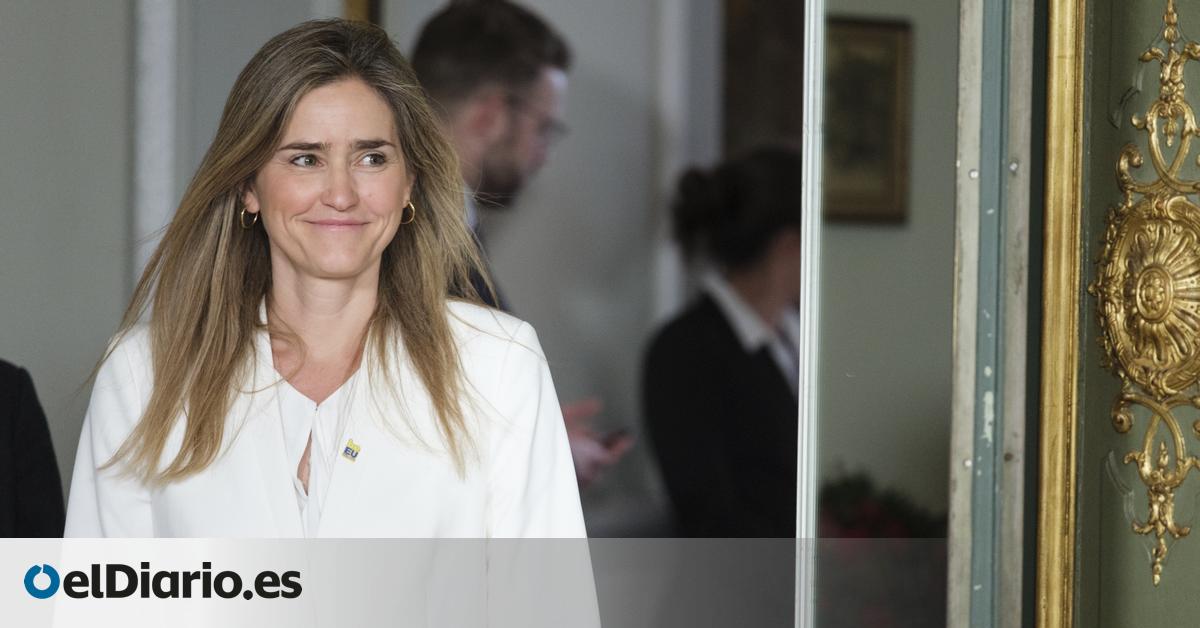
The current Secretary of State for Energy and right hand of Teresa Ribera, Sara Aagesen (Madrid, 1976), will replace the future executive vice president of the new European Commission as third vice president of the Government and minister for the Ecological Transition and the Demographic Challenge, as and as La Vanguardia has advanced and sources from the Executive confirm to elDiario.es.
The appointment must materialize once next week the plenary session of the European Parliament in Strasbourg ratifies the appointment of Ribera as executive vice president of the Commission and European Commissioner for Competition, a designation that the Spanish PP has tried to torpedo until the last moment.
The movement is reminiscent of the election of Carlos Corpus as a substitute in the Ministry of Economic Affairs of Nadia Calviño after her departure to the European Investment Bank (EIB). The difference is that Aagesen, who as a Corps does not have political weight in the PSOE, will maintain the vice presidency at the head of a portfolio that Pedro Sánchez considers key.
The still Secretary of State is Ribera’s natural replacement. Aagesen has accompanied the still head of that super ministry for much of her career. The last four years, since January 2020, as Secretary of State for Energy, a position for which she was appointed in 2020, replacing the recently deceased José Domínguez Abascal.
A few weeks before, Aagesen, then a mere advisor in the ministry, was already standing out in one of the sessions of the 2019 United Nations Conference on Climate Change (COP25), which had to be improvised in Madrid due to the impossibility of holding it in Chile. . A few weeks later, she was appointed Secretary of State for Energy. The more than four years spent at the head of that Secretary of State make her the person who has held this position the longest since democracy began and the first woman to do so.
During this time, Aagesen has been in charge of key regulations in his department to promote electrical self-consumption and renewable energies, in turbulent years in which the Executive launched the so-called social shield to protect the most vulnerable with the outbreak of the pandemic. Subsequently, Spain managed to impose in the EU, hand in hand with Portugal, the so-called Iberian solution to contain the electricity price crisis after the invasion of Ukraine and the explosion of gas prices.
A chemical engineer from the Complutense University of Madrid, specialized in the Environment, Aagesen has developed her entire professional career linked to the field of energy and the environment. Between 2002 and 2018 he worked in the Climate Change Office, participating in the preparation of the 2020 roadmap for diffuse sectors or the design and implementation of the First National Emissions Allocation Plan.
Negotiator for the Spanish delegation at the United Nations Framework Convention against Climate Change and the Intergovernmental Panel on Climate Change (IPCC) since 2002, Aagesen was part of the advisory board of the Climate Technology Center and Network (CTCN), sponsored by the United Nations Environment Organization, and the United Nations Industrial Development Organization, in addition to participating as a national expert in various working groups of the European Commission and in the monitoring and evaluation of community regulatory development.
In 2018, she was appointed advisor to the cabinet of the Ministry for the Ecological Transition, where she was responsible for the direction, coordination and definition of the draft of the National Integrated Energy and Climate Plan (PNIEC) 2021-2030 and the Long-Term Strategy 2050. Now he must direct from the top of the ministry the policies to materialize the ambitious objectives of the PNIEC included in the latest update sent to Brussels last September.
Source: www.eldiario.es

